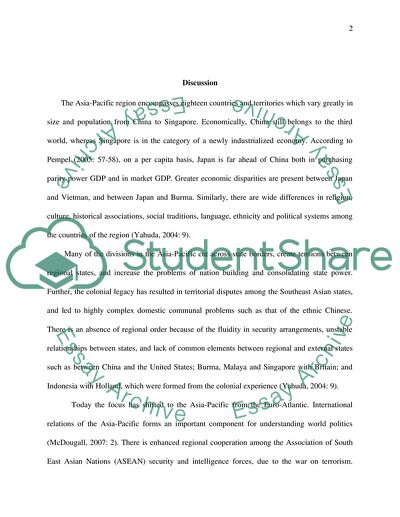Cite this document
(International Relations of the Asia-Pacific: Is Democracy Inimical Research Paper, n.d.)
International Relations of the Asia-Pacific: Is Democracy Inimical Research Paper. Retrieved from https://studentshare.org/politics/1547856-1is-democracy-inimical-with-asian-values-or-2-chinas-interests-in-the-asia-pacific-region-are-inherently-incompatible-with-those-of-the-united-statesan
International Relations of the Asia-Pacific: Is Democracy Inimical Research Paper. Retrieved from https://studentshare.org/politics/1547856-1is-democracy-inimical-with-asian-values-or-2-chinas-interests-in-the-asia-pacific-region-are-inherently-incompatible-with-those-of-the-united-statesan
(International Relations of the Asia-Pacific: Is Democracy Inimical Research Paper)
International Relations of the Asia-Pacific: Is Democracy Inimical Research Paper. https://studentshare.org/politics/1547856-1is-democracy-inimical-with-asian-values-or-2-chinas-interests-in-the-asia-pacific-region-are-inherently-incompatible-with-those-of-the-united-statesan.
International Relations of the Asia-Pacific: Is Democracy Inimical Research Paper. https://studentshare.org/politics/1547856-1is-democracy-inimical-with-asian-values-or-2-chinas-interests-in-the-asia-pacific-region-are-inherently-incompatible-with-those-of-the-united-statesan.
“International Relations of the Asia-Pacific: Is Democracy Inimical Research Paper”, n.d. https://studentshare.org/politics/1547856-1is-democracy-inimical-with-asian-values-or-2-chinas-interests-in-the-asia-pacific-region-are-inherently-incompatible-with-those-of-the-united-statesan.


